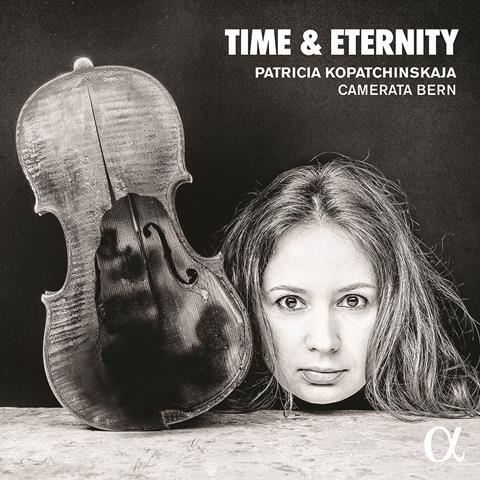A passionate, challenging and ultimately fascinating ‘concept’ album

THE STRAD RECOMMENDS
The Strad Issue: December 2019
Description: A passionate, challenging and ultimately fascinating ‘concept’ album
Musicians: Camerata Bern/Patricia Kopatchinskaja (violin) Beata, Sarah & Monika Würsten (singers) etc
Works: HARTMANN Concerto funèbre MARTIN Polyptyque ZORN Kol Nidre SYGIETYNSKI Dwa serduszka MACHAUT Kyrie from Messe de Nostre Dame BACH Chorales FIŠER Crux
Catalogue Number: ALPHA 545
Patricia Kopatchinskaja, the high priestess of the violin concept album, is back with her latest fascinating concoction, based on one of her ‘staged concerts’ that centres around two violin concertos accompanied by string orchestra(s).
The result is a sequence that takes us from the Jewish Kol nidre to the Christian Resurrection by way of death, destruction and Christ’s Passion.
Not exactly a laugh a minute, then, but instead an intense 80 minutes or so of concentrated music making. Opening with John Zorn’s Pärt-like Kol nidre, fading away to the sound of a tolling bell and studded with brief multi-faith prayers, the whole warmly recorded programme needs to be appreciated as a single entity and seems destined to make its emotional effect whatever the listener’s faith, or lack thereof.
Kopatchinskaja’s interpretation of Hartmann’s Concerto funèbre may not necessarily please those looking for a ‘library’ account, given her volatile approach to tone and even metre, but there’s no mistaking her passionate identification with the music’s external panorama, which alludes to the Hussite hymn ‘You fell as victims’ and ‘Eliyahu hanavi’, also sung separately by a trio of folk singers.
Martin’s late Polyptique for violin and double string orchestra, written for Menuhin, portrays six of 14th-century Sienese artist Duccio di Buoninsegna’s altar panels detailing the Passion, and receives an equally compelling performance from Kopatchinskaja and her Bernese colleagues, the latter also affectingly playing well-chosen Bach chorales, largely from the St John Passion, between each of its movements.
MATTHEW RYE











































No comments yet